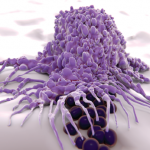SAN DIEGO—At the 2017 ACR/ARHP Annual Meeting in San Diego last month, the ACR and the ARHP honored a group of distinguished individuals who have made significant contributions to rheumatology research, education and patient care. This month, The Rheumatologist speaks with the ACR winners about their individual contributions to advancing rheumatology. In coming issues, we…








